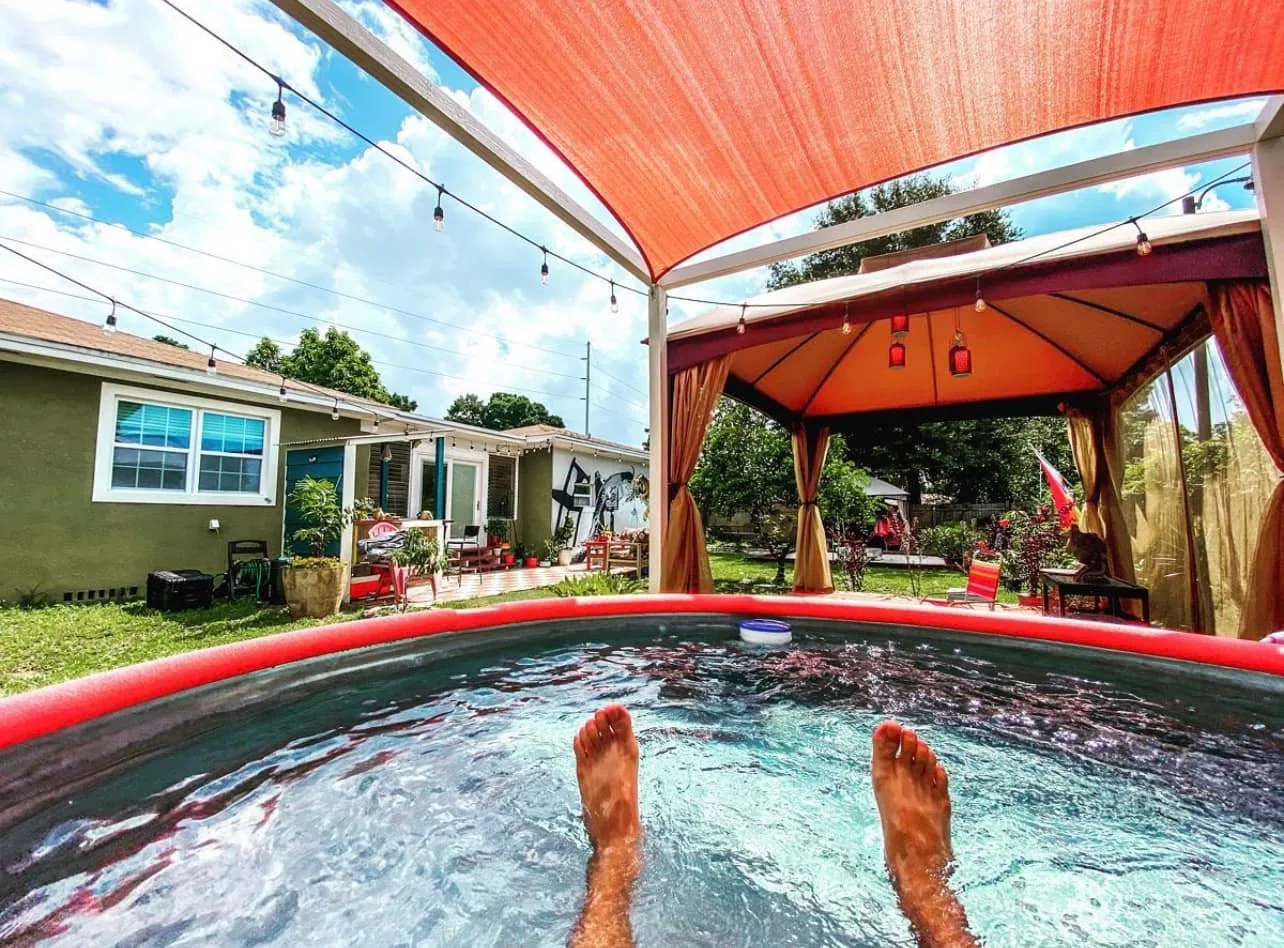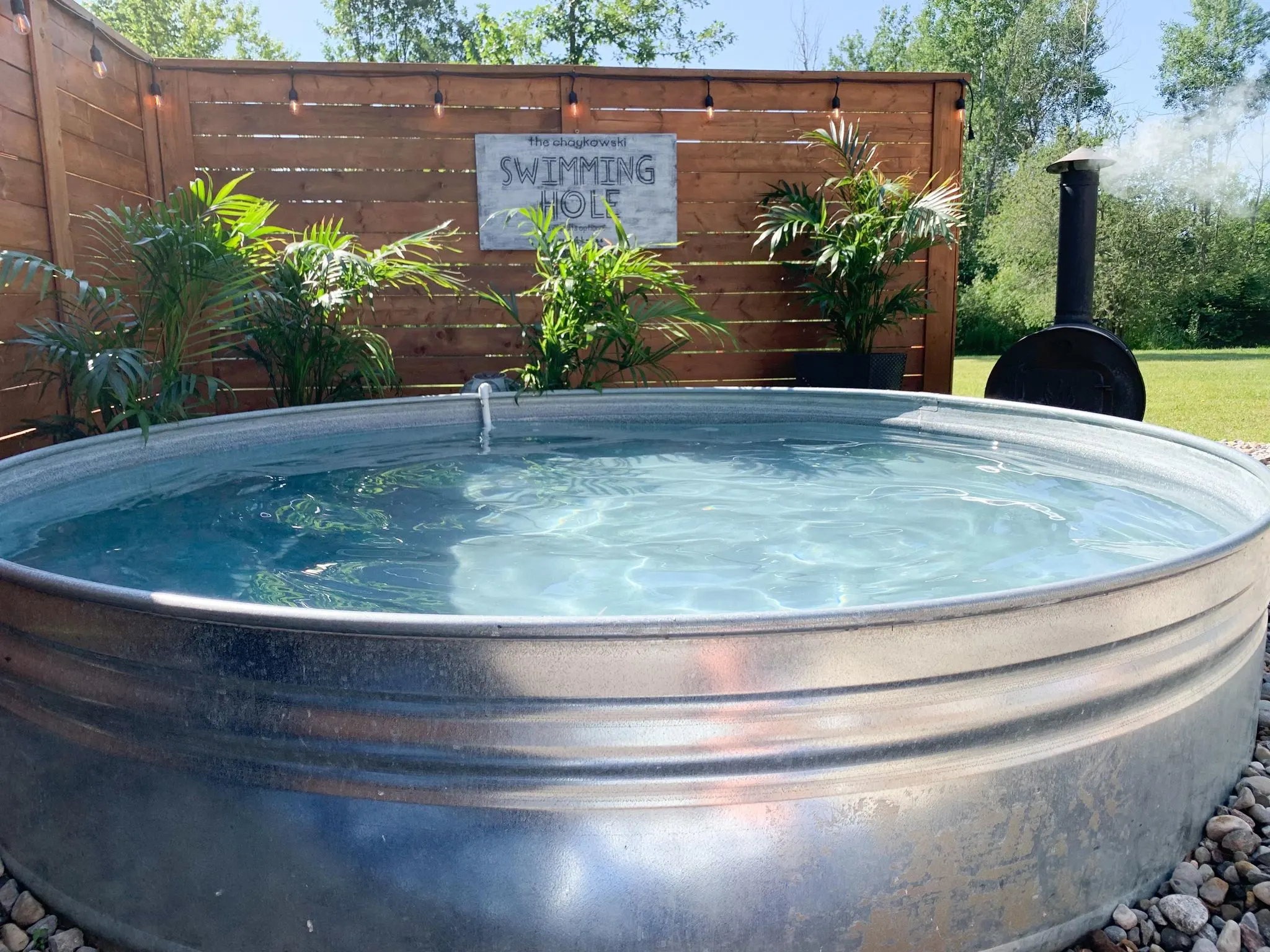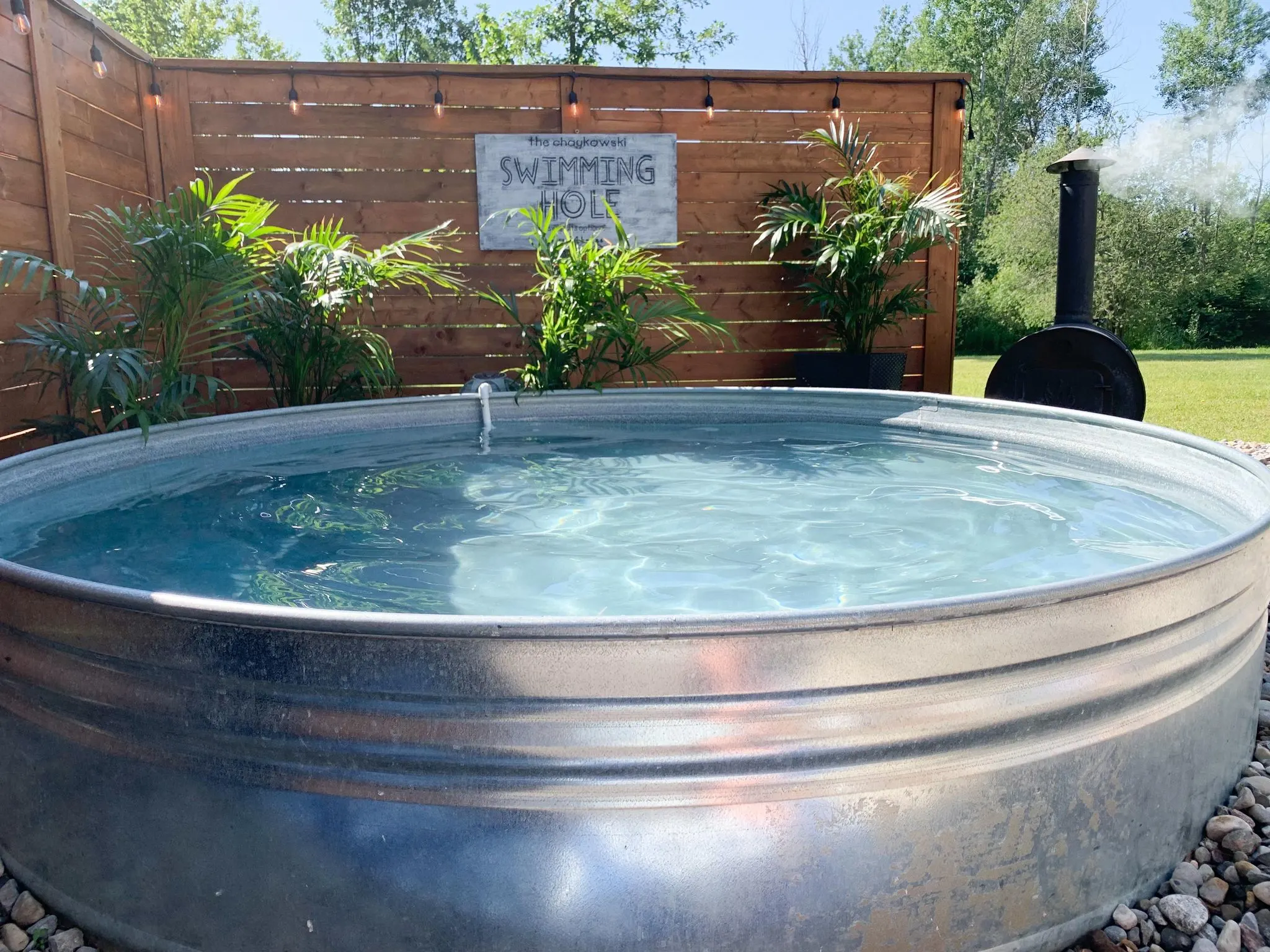A question that many people seem to be asking, these days is, “Do stock tank pools rust?” After much research unfortunately the answer is not that simple. Read on to get all the details on if stock tank pools rust.
Stock tank pools indeed rust over time, but there are ways to prevent rusting and keep them in great condition for a longer period of time if taken care of properly.
Let us explain in more detail through this helpful guide.
A stock tank pool could be a more cost-effective and simpler way to get a pool if you are one of the many homeowners who wish to spruce up their homes and add a way to enjoy your backyard.
In fact, the pool industry has experienced a boom over the last two years, with stock tanks and shipping containers being two of the most popular choices.
Stock tank pools are appealing due to their flexibility, which allows homeowners to place and decorate them however they choose.
It can fit either in a modern and stylish barndominium, or a charming and homey residence.

Source: Albert Wong (Florida)
Page Contents
Do Stock Tank Pools Rust?
Stock tanks are usually made of galvanized steel and are round or oval in shape. In most cases, it has a depth of two feet but with a diameter ranging from three to 10 feet.
While stock tanks are made of plastic, they are more likely to break and become brittle over time. Metal stock tank pools indeed rust since they are more resistant to outdoor elements.
However, this does not mean that they will not rust over time.
While stock tank pools rust over time, we can prevent them from rusting as long as possible. As long as they are properly maintained, these can last for many years, making them an excellent pool alternative for many homeowners.
In this guide, let’s go over the multiple options you could try to prevent your stock tank pools from rusting.

Source: Lisa Chaykowski (Ottawa, Ontario)
How Do Metal Stock Tanks Work?
Metal stock tank pools are made of rust-resistant galvanized steel that can last for several years with proper care. “How does this happen?” you might ask.
The galvanizing process protects the steel from rust by forming a barrier that prevents corrosive substances from reaching the underlying steel by using zinc as a sacrificial anode.
This way, even if the coating is scratched, the exposed steel remains protected by zinc.
Stock tank pools rust, even though they are rust-resistant since the steel does not prevent them from rusting completely. It is possible to protect metal stock tanks by applying a coating, lining, or finding ways to reduce direct exposure to pool chemicals.
Use a Pool Chlorine Floater
Since saltwater pool treatments are too corrosive for stock tank pools, pool tablet chlorination is the best method to clean the water in these pools.
In general, chlorine tablets are a safe, effective, and affordable way to sanitize your pool. Due to their ease of use, they are popular among pool owners. As they get smaller and smaller, they slowly dissolve, releasing chlorine into your water.
Although chlorine tablets assist in preventing the growth of algae and mosquitoes in your pool, releasing them can directly expose the chlorine to the metal of your stock tank, resulting in corrosion.
Here is where chlorine pool floaters come into play.
To use chlorine pool floaters, you need 1 to 3-inch chlorine tablets, which slowly dissolve as they chlorinate the water, without releasing too much all at once.
As a result, the metal of the stock tank is not directly exposed to chlorine, allowing it to last longer.
If people are swimming in the pool, the chlorine floater should be removed so that the chlorine does not continuously disperse, which may harm the people swimming.

Source: Sheilah Dixon Huckabee ( Georgia)
Apply Rust-Proof Coating
If you want to prevent your stock tank pools from rusting, you could coat them with a rust-proof coating, such as a rubber coating from Flex Seal, or a spray-on sealant, such as Rust-Oleum.
Unlike traditional spray paint, these sealants provide a thick rubber layer that seeps into cracks and blocks out moisture, air, and water, preventing rust and corrosion.
Even though coating a stock tank pool is relatively simple, you will need to apply a nice, even coating, which may require many cans depending on the size of your pool.
When applying, wear a mask, as the fumes can be strong! After the coating has been applied, you should read the instructions regarding the cure time, as it may take as long as 24 hours before the pool can be used.
Place a Pool Liner
Even though pool liners are typically used for in-ground pools, they can also be used for above-ground pools, including stock tanks.
A swimming pool liner is a vinyl surface that is attached to the walls and floor of a pool to help keep in the water while providing an inviting surface for the water and enhancing your pool’s overall appearance.
A pool liner provides a protective layer from your stock tank’s metal interior to your chlorinated water, prevents physical damage, and protects from mold and algae growth.
This is an alternative you might want to consider since leaving the galvanized metal untreated or painted will not keep the metal looking good for longer, and will eventually rust or eat away at the paint as pool chemicals or salt attack it.

Source: Matt N Michelle Baughcum (Georgia)
Final Thoughts
While stock tank pools rust over time, there are several options to consider to make them last longer. After many years, your stock tank pool can still look as good as new if it is properly maintained and cared for.
Noah Edis is a passionate staff writer at Barndominium Life, a leading online resource for all things barndominium. With years of experience in the writing industry, Noah has made a name for himself as a skilled storyteller and a knowledgeable authority on the topic of barndominiums.
Noah’s interest in barndominiums began when he stumbled upon the concept while researching alternative housing options. Intrigued by the rustic charm and functionality of these converted barns, he soon became obsessed with the idea of living in one himself. He spent countless hours researching the construction, design, and decorating aspects of barndominiums, and soon became an expert on the topic.
As a staff writer at Barndominium Life, Noah enjoys sharing his knowledge and passion for these unique homes with others. He has written numerous articles covering a wide range of topics, from the history of barndominiums to the best ways to decorate them. Noah’s writing is informative, engaging, and always on-trend, making him a valuable asset to the Barndominium Life team.
Noah is a graduate of the University of British Columbia, where he earned a degree in English Language and Literature. When he’s not writing about barndominiums, he can be found exploring the great outdoors, trying new restaurants, or spending time with his family and friends. Noah is dedicated to his craft and is always striving to improve his writing skills and knowledge of the barndominium lifestyle.
Connect with Noah on LinkedIn
